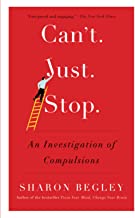Pathological Gambling
Pathological gambling, also known as compulsive gambling or disordered gambling, is a recognized mental disorder characterized by a pattern of continued gambling despite negative physical, psychological, and social consequences.
Cluster Number:
Wiki Number: PW156
Diagnosis: Pathological Gambling
US Patients: 0.6 of 1%
World Patients:
Sex Ratio: M+;W
Age Onset:
Brain Area: some victims have lower norepinephrine than normal gamblers, which is normally secreted under stress or thrill; or lack serotonin.
Symptoms: Continuous gambling despite negative consequences to self or family and in spite of desire to stop. Also considered an addiction.
Progression:
Causes: impulsivity and comorbidity with alcohol problems; dopamine dysregulation has been observed.
Medications: paroxetine, lithium, palmefene
Therapies: Gamblers’ Anonymous, CBT, 1/3 recover by themselves

